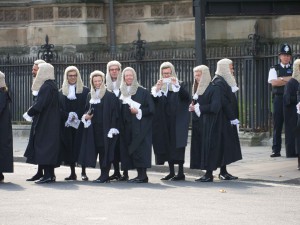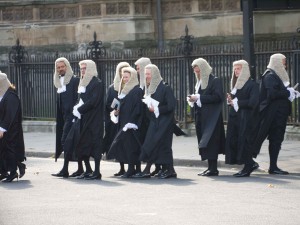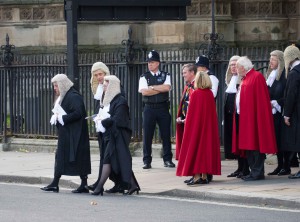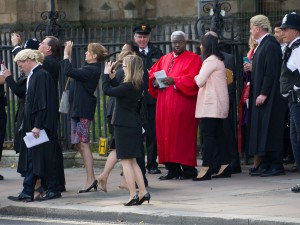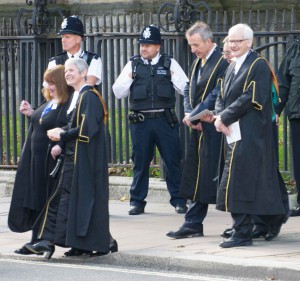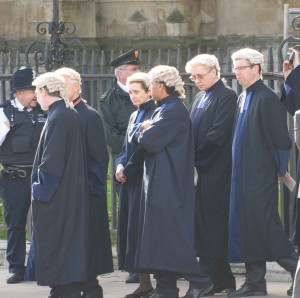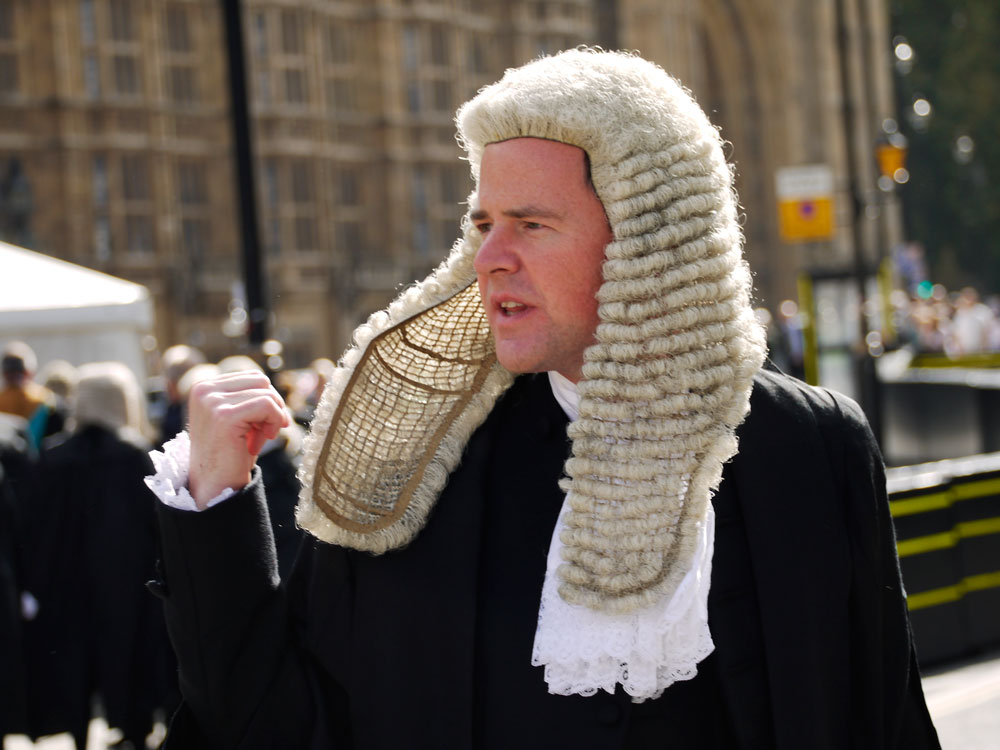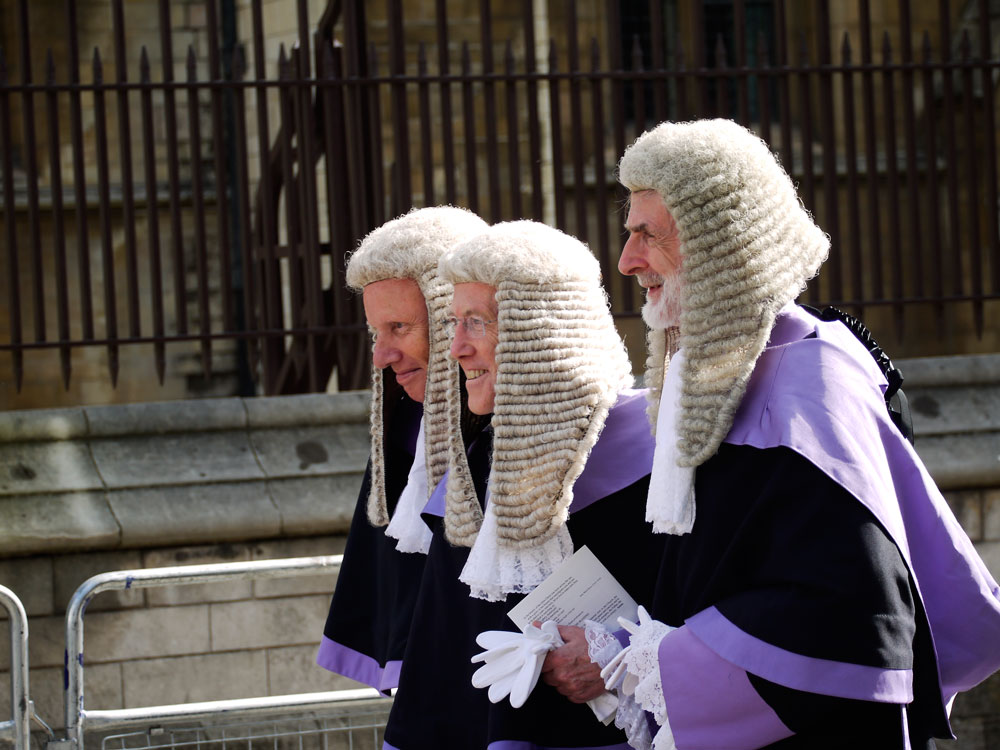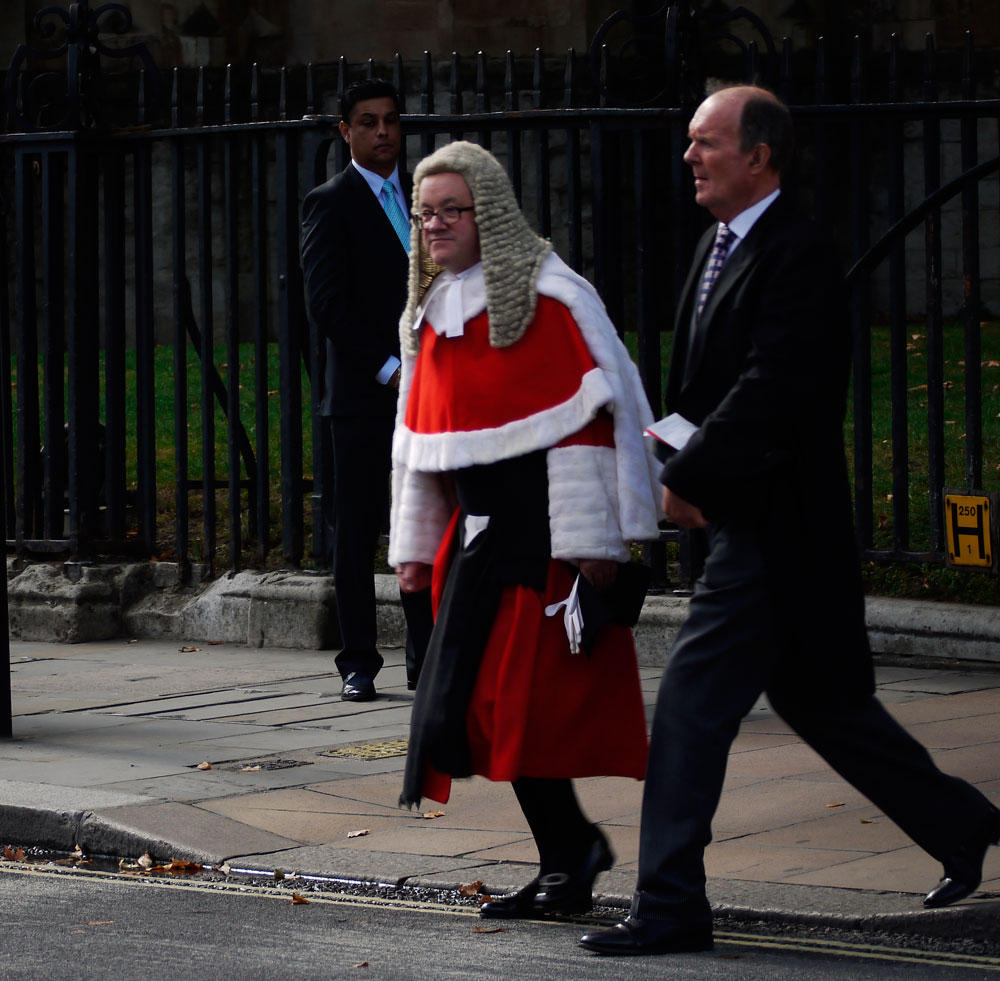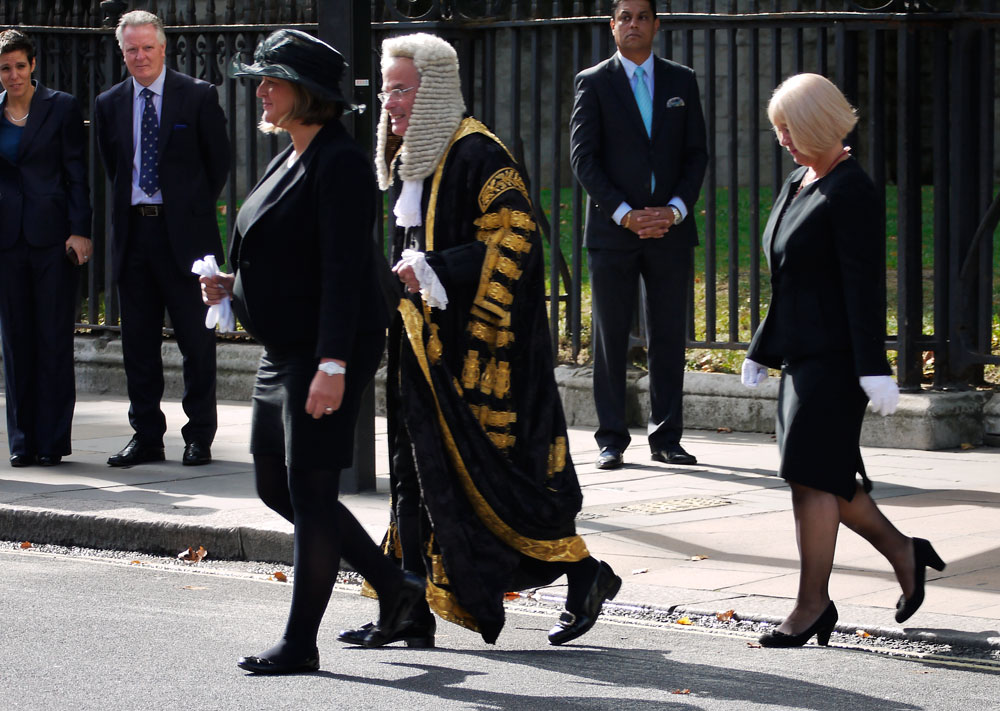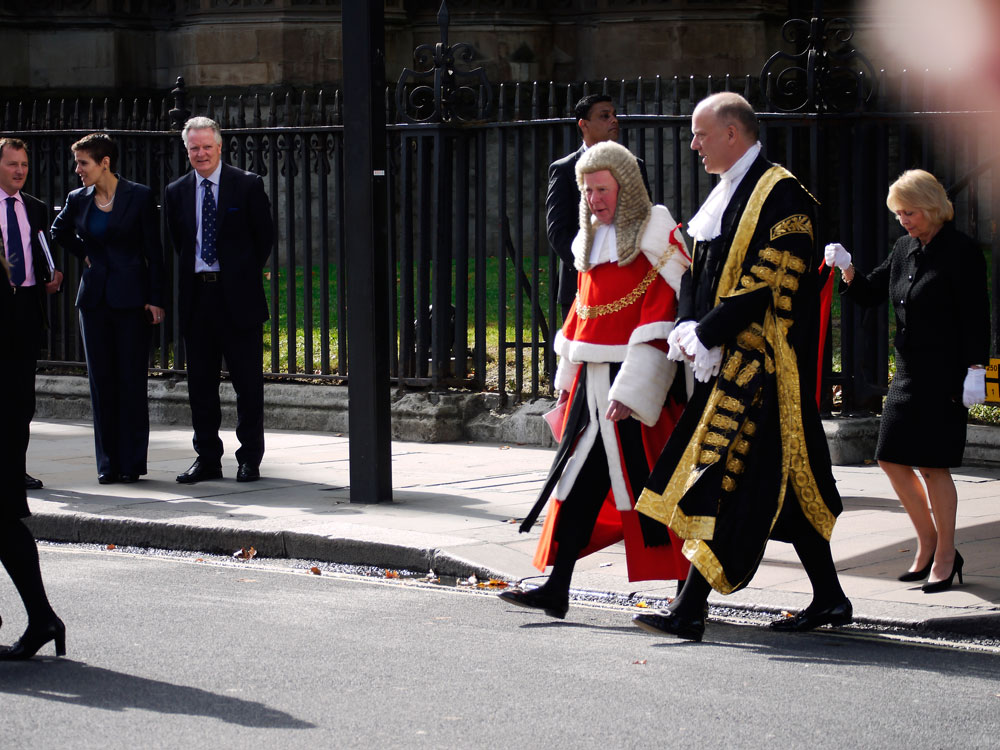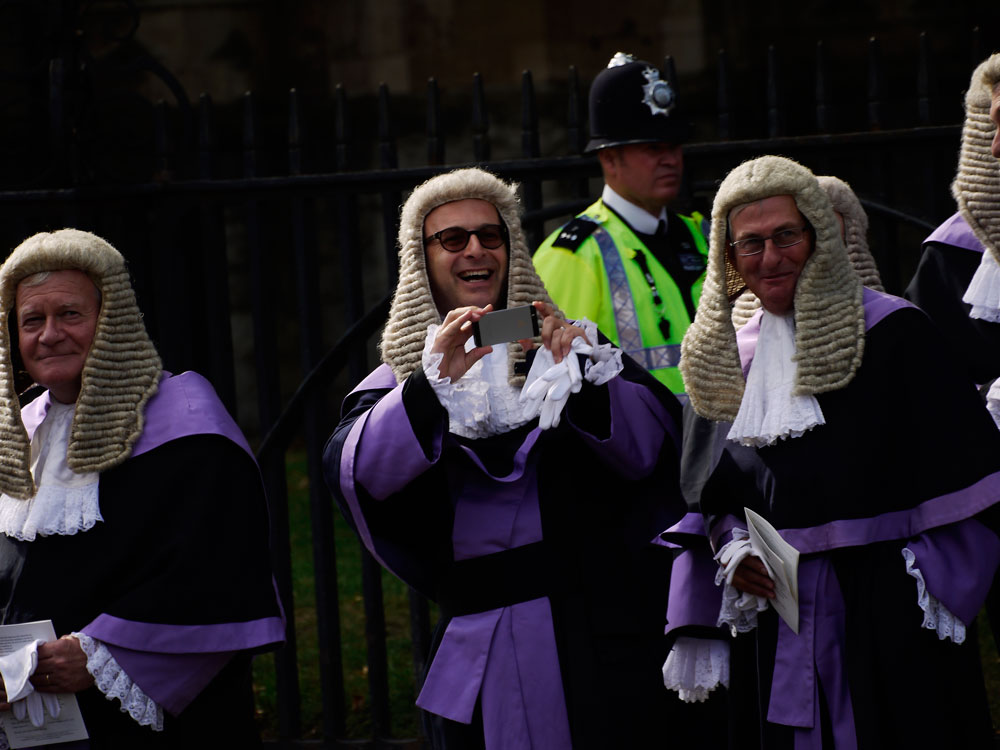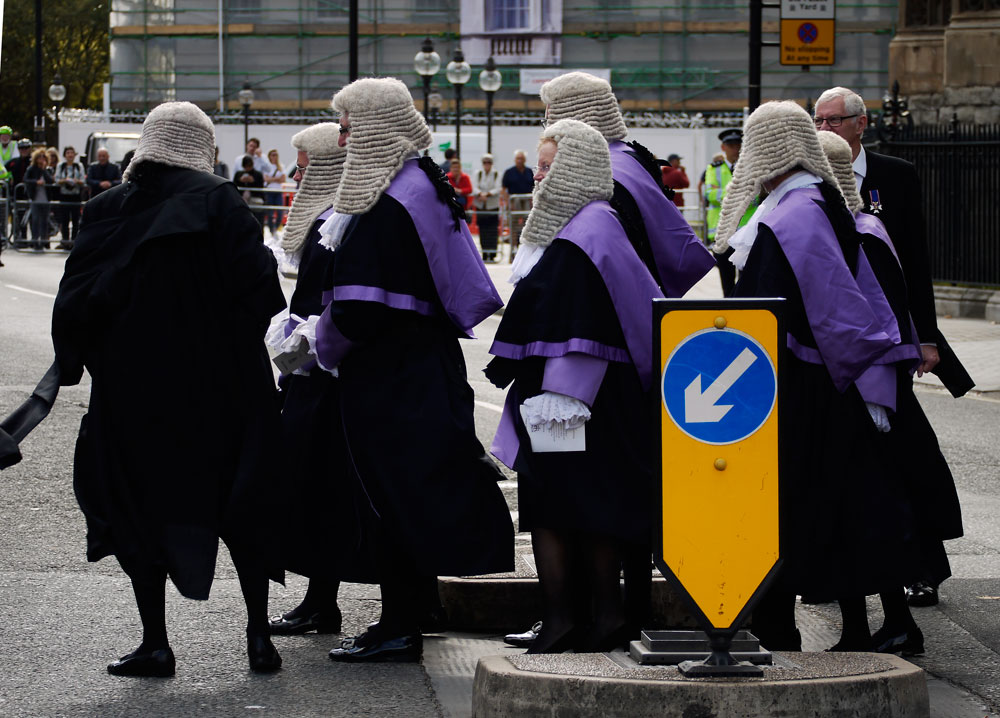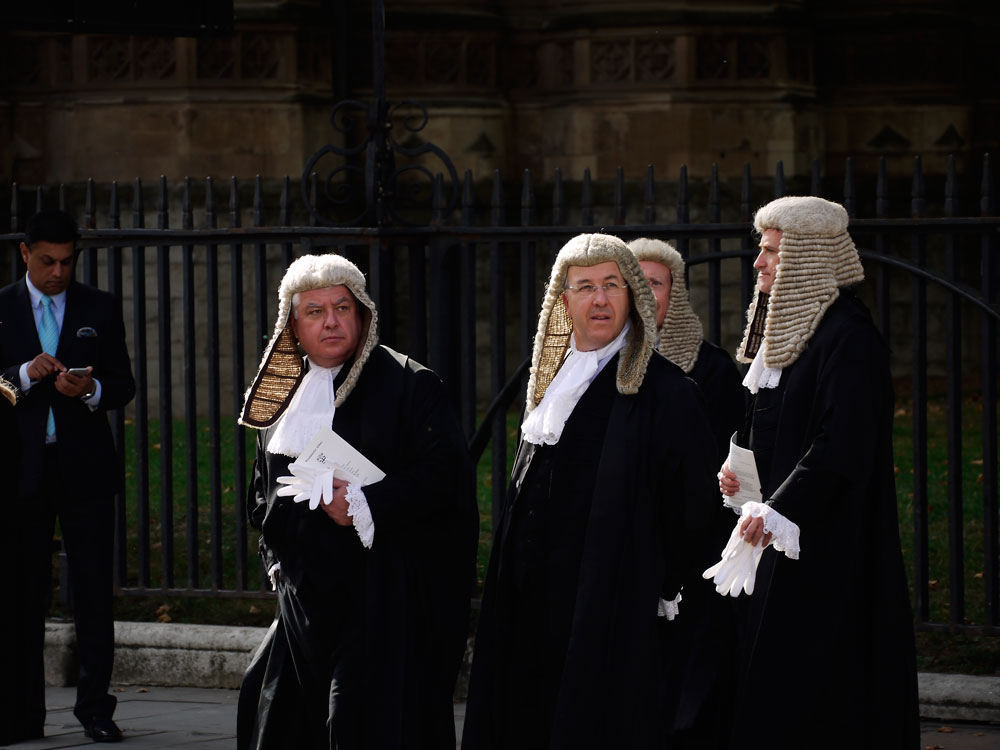Charles Dickens: Bleak House
CHAPTER I
In Chancery
London. Michaelmas term lately over, and the Lord Chancellor sitting in Lincoln’s Inn Hall. Implacable November weather. As much mud in the streets as if the waters had but newly retired from the face of the earth, and it would not be wonderful to meet a Megalosaurus, forty feet long or so, waddling like an elephantine lizard up Holborn Hill. Smoke lowering down from chimney-pots, making a soft black drizzle, with flakes of soot in it as big as full-grown snowflakes—gone into mourning, one might imagine, for the death of the sun. Dogs, undistinguishable in mire. Horses, scarcely better; splashed to their very blinkers. Foot passengers, jostling one another’s umbrellas in a general infection of ill temper, and losing their foot-hold at street-corners, where tens of thousands of other foot passengers have been slipping and sliding since the day broke (if this day ever broke), adding new deposits to the crust upon crust of mud, sticking at those points tenaciously to the pavement, and accumulating at compound interest.
Ian McEwan: The Children Act
ONE
London. Trinity term one week old. Implacable June weather. Fiona Maye, a High Court judge, at home on Sunday evening, supine on a chaise longue, staring past her stockinged feet towards the end of the room, towards a partial view of recessed bookshelves by the fireplace and, to one side, by a tall window, a tiny Renoir lithograph of a bather, bought by her thirty years ago for fifty pounds. Probably a fake.
The parallels between Bleak House and The Children Act, Ian McEwan’s new novel, are limited, although the weather theme is pursued, fog in Bleak House being replaced by a long damp spell in the summer of 2012 in The Children Act.
It’s a short novel less about the law than about balancing the judge’s involvement in her work with her personal life. To write it, McEwan had to do a lot of research into law and lawyers. Indeed, one of his advisers was James Wood of Doughty Street Chambers, the second mention of those chambers here in a couple of weeks.
There is an introductory quote from the Children Act of 1989:
When a court determines any question with respect to … the upbringing of a child … the child’s welfare shall be the court’s paramount consideration.
There’s a good summary and review by Carl Gardner at Head of Legal. As he writes, one can criticize it from the legal point of view, but that, as he says, is from a lawyer’s point of view – on the other hand, it’s only because this is a legal blog that I’m mentioning it. For instance, there is a lot of discussion as to whether a boy three months short of his 18th birthday can decide his own medical treatment, and that (referred to as Gillick competence) is scarcely a controversial matter – maybe if he were 15, the opposing sides would exploit the age factor. There’s also the point that a child over 16 and under 18 who refuses medical treatment may be overruled by the courts, but only subject to the child’s paramount interest.
(Gillick competence refers to Mrs Victoria Gillick, who had five sons and five daughters, and in 1983 failed to get a court declaration that the daughters would not get contraceptive advice until they were over 16.)
Another lawyer’s review, by Sarah E Green, in Family Law Week, links to some of the decisions used by McEwan in the novel. The bits I found most interesting in showing how a family law judge has to think were based on Re G, a case concerning the schooling of Jewish children after a divorce:
Application for permission to appeal the making of (1) a specific issue order in relation to the education of five children from the Chareidi community of ultra orthodox Jews; (2) a residence order in favour of the mother. Permission refused in relation to the residence order. Permission granted in relation to the education specific issue order but the appeal dismissed.
Green concludes:
This book has been received by the legal community with much aplomb, although with somewhat less enthusiasm from a handful of critics outside of the legal sphere. It is a must-read for any family lawyer with a passion for literature.
Paragraph 84 of Lord Justice Munby’s judgment is the source of McEwan’s character’s remark that all three barristers, the two solicitors and the CAFCASS officer in the case were women – and yet the father’s religious community would have prevented his daughters from educational opportunities:
8
4. The first focused on educational opportunity. Here the evidence was clear and the choice stark. Whatever may be the practice in relation to education down to the point when children takes GCSEs, it is clear that, even for boys, the educational options narrow drastically thereafter in the Chareidi system and that tertiary education as generally understood hardly features at all. Career opportunities for boys in professions such as medicine and the law are very limited indeed, for girls virtually non-existent. The contrast with the wider community could hardly be greater. It is hard to imagine how either law or medicine could operate today without the women who at every level and in such large numbers enjoy careers which they find fulfilling and from which society as a whole derives so much benefit. Take the law: when I was called to the Bar in 1971 there were 2,714 barristers in practice at the independent bar of whom only 167 (some 6%) were women; by 2011 there were 12,673 of whom 4,106 (some 32%) were women. That is a measure of just how far society has moved in the last 40 years. And that, in my judgment, is the kind of societal reality to which a family judge must have regard in a case such as this. It is, after all, the reality which is daily on display in our family courts. The present case, as it happens, is typical of many: all three counsel who appeared before us were women, so too were the two solicitors, and so too was the CAFCASS officer. Judge Copley, in my judgment, was plainly entitled to conclude, as he did, that:
“the schools to which she wishes to send them will provide infinitely superior opportunities for these children to gain a much fuller and wider education, not only at secondary level but also at tertiary level should they choose that – the father’s own evidence and that of his witnesses bears this out – and thereafter they will have much greater job opportunities”,
just as he was entitled to accept Mrs Adams’ view that it was:
“more likely that the children will achieve greater economic success if they are given aspirations in relation to careers that exist outside the Jewish community.”
The musical recital at the end of the novel reminded me of Alan Rusbridger’s Play It Again, where you also get the contrast between playing the piano and dealing with a hectic work life.

